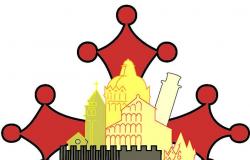The challenge brought by right-wing extremism to Italian democracy in the 1970s was the theme of the speech by the political scientist Piero Ignazi, guest on Tuesday 20 February of the «Pomeriggi» curated by the Clementina Calzari Trebeschi Foundation in the San Barnaba auditorium, piazzetta Benedetti Michelangeli , in the city. The meetings, promoted by the Municipality and organized with Casa della Memoria and the Micheletti Foundation, are inspired by the 50th anniversary of the Piazza della Loggia massacre.
Ignazi, professor of comparative politics at the University of Bologna, has dedicated several studies to the Italian and European right. In Brescia he explained the subversive forces that gave rise to the massacre they were grafted onto a democratic culture still marked by elements of fragility; traits that the scholar sees re-emerging in the present.
Professor Ignazi, in what context did the challenge of right-wing terrorism arise?
In those years, the democratic form was called into question, but was never accepted by the neo-fascist right. The opportunity arose, on the one hand, from the crisis of the Italian social movement at the end of the 1960s, its isolation and its difficulty in representing that world, which decided to move independently. It opened the door to more destructive impulses. The other cause is the strong political radicalization due to the social movements of that period.
You speak of a “challenge to a fragile democracy”. Why?
The political cultures that emerged in the post-war period (the Christian Democratic and the Communist), in different ways, let it be clear, did not have much confidence in representative democratic institutions and liberal principles. Compared to these, the Christian-democratic culture was suspicious, the communist one, hostile. The liberal forces of the “Risorgimento” tradition were marginalized. This, in a country emerging from 20 years of fascism supported by a strong consensus, made it difficult to forcefully metabolize democracy and its institutions.
Were exponents of the extreme right also in the state?
It’s the most sore point. The choice made after the war was to avoid the purge of most branches of public administration. Many remained with stories of belonging and links to fascism. For years they have influenced various sectors of the state with their culture. There was therefore also a sort of protection or collaboration, with the more subversive fringes, and this is a terribly bitter reality.
Democracy won. Paying a price?
The price is connected to the fact that the discovery of state apparatuses conniving with anti-institutional and terrorist actions has further weakened the trust of various components of society towards the political system. These components were, in those years, largely channeled into the left-wing opposition, but they were also a very strong fuel for Red Brigade terrorism.
Is our democracy still fragile?
I see a long-term cultural deficit, reinvigorated since 1994 with different expressions of the same difficulty in affirming liberal principles. The victory of the right today is also a symptom of another democratic deficit, expressed by the Draghi government: resorting to a government of all in an unnecessarily dramatized situation, eliminating the dialectic between the parties, facilitated the victory of those who denounced the presence of a establishment that dominates everything.





